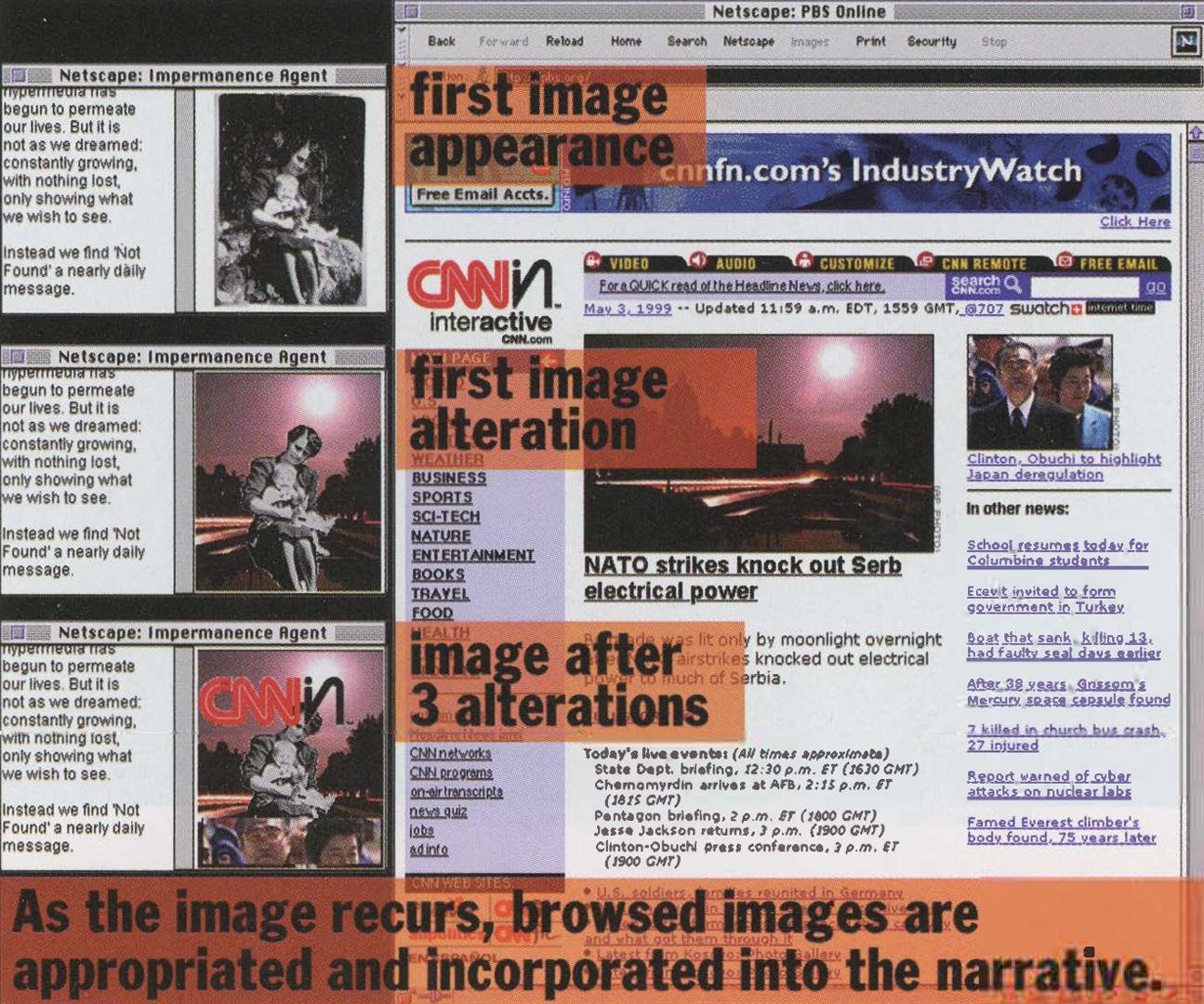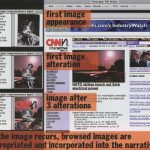A. C. Chapman, Noah Wardrip-Fruin, Brion Moss, Duane Whitehurst: The Impermanence Agent
Artist(s):
Title:
- The Impermanence Agent
Exhibition:
Creation Year:
- 2000
Medium:
- Narrative alteration and reaction to Web browsing
Category:
Artist Statement:
The story of hypermedia, in which the Web is a recent chapter, begins with a vision of transforming the brain’s associative connections into media (media that can be infinitely duplicated and easily shared), creating pathways of thought in a form that will not fade with memory. In recent years, hypermedia has begun to permeate our lives. But it is not as we dreamed: constantly growing, with nothing lost, only showing what we wish to see. Instead, “Not Found” is a nearly daily message. The story of software agents begins with the idea of a “soft robot” capable of carrying out goal-oriented tasks while requesting and receiving advice in human terms. In recent years, a much narrower marketing fantasy of the agent has emerged (with a relationship to actual agent technologies as tenuous as Robbie the Robot’s relationship to factory robots), and it grows despite failures such as Microsoft Bob. Now we often see agents as anthropomorphized, self-customizing virtual servants designed for a single task: to be a pleasing interface to a world of information that does not please us.
The Web disappoints us with its too-perfect reflection of our ambivalent relationships with impermanence and openness: dynamic and unstable, diverse and overwhelming. In response, some Web businesses are marketing fantasies of agents that will find for us only the information we desire and shelter us from chance encounters with unpleasant content and broken links.
The Impermanence Agent is a different response. It interacts with users as a Web-browser window. The Agent tells a personal story, a story of impermanence. The Agent is meant to be experienced peripherally, over time, not “visited.” It tracks the user’s Web browsing, makes copies of the texts and images the user views, and then customizes its story by incorporating this material. The Agent customizes until none of its original story is left.






